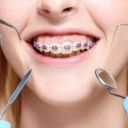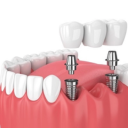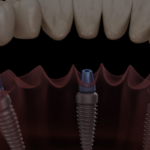
Dental Implants
March 11, 2024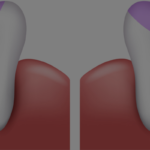
Onlays/Inlays
March 11, 2024Dentures
Dentures are removable appliances that replace missing teeth. These are acrylic or cast metal and have a
plate holding the fake teeth, which mimic the missing teeth. These dentures may be partial or complete.
They are generally made of pressure-packed and heat-cured acrylic resin or flexible material. They are the most cost-effective, convenient, and high-quality alternative to implants.
Why do I need it?
There may be a lot of reasons for missing teeth. The commonest is teeth lost due to gum disease or
tooth decay. Other reasons for losing teeth could be teeth falling off due to trauma or accident, fractures,
etc. It is essential to replace the missing teeth because neighbouring healthy teeth tend to shift into the
spaces previously occupied by the missing teeth. This leads to a disharmony of the bite. Other teeth may
become loose, gums may recede, and a reduction in the level of the jaw bone may occur with time. Missing
teeth also exert an inadvertent force on other teeth and commonly causes fractures of healthy teeth in
seniors. Hence, it is crucial to get your missing teeth replaced. There are many options available for that,
like dentures, bridges, or implants. Dentures are the most commonly preferred alternative.
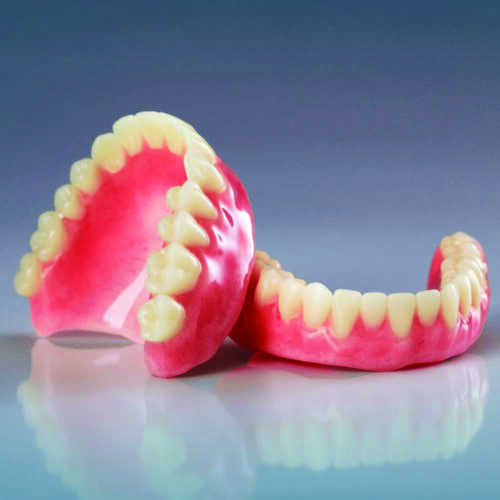
How long will it take?
Several clinical steps are required to accurately fabricate the dentures with proper centric relation, good
stability, and retention. So your dentist may get your dentures done in multiple appointments, the number of which depends on the number of teeth missing, type of dentures, and the condition of your mouth.
How long to recover? When can I get back to work?
Usually, denture treatments do not require any minor drilling or working on your teeth; you can rest assured. It is entirely painless but a time-consuming procedure. But you need no recovery time from this
treatment. You may need a couple of days to adjust to your new dentures, but that may not stop you from
resuming your work. However, it will take a little practice to talk and eat normally after you obtain your
dentures.
What should the patient do before the treatment?
No preparation is needed before the treatment.
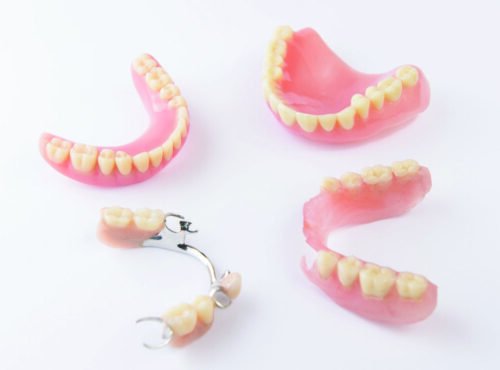
What should the patient do after the treatment?
Your new dentures may feel a bit uncomfortable for the first few weeks or even months. You will need a
good amount of practice for eating and speaking with dentures; try to use them as often as possible. It
is common to feel bulky or loose when your cheeks and tongue muscles are in the process of learning to
hold your dentures in place. Excessive saliva flow, a feeling that the tongue does not have adequate room,
and minor irritation or soreness may also be felt. But if all of these issues persist even after a few weeks
of usage and you cannot adjust to your dentures, you must see your dentist.



